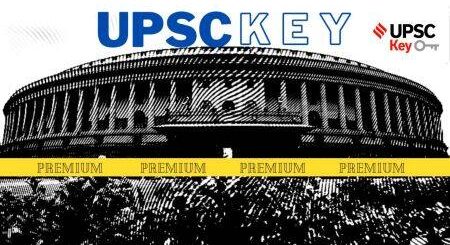The school choice plan that is controversial, even in Texas
MINERAL WELLS, Texas — On many Friday nights in this rural stretch of north Texas, you can find Judith Echanique working the concession stands, flush with local fans.
“I’m always here,” said Echanique, whose 10th-grade daughter and fifth-grade son attend the local public schools. On this February night, she was serving hot dogs, nachos, soda and candy to boosters of the JV and varsity soccer teams. “I was telling my daughter, even if you’ve graduated high school, I will still always come and volunteer, because I love being a mom and I love being involved in the community.”
In Mineral Wells — a town of about 15,000 located 90 minutes west of Dallas — community members come together to cheer on sports teams, celebrate homecoming and applaud the school choir.

The governor worked to court support by tying the passage of his voucher plan to a $7.6 billion funding boost for public schools that included teacher pay raises. Still, a stalwart group of 21 House lawmakers, most of whom represent rural areas and fear the measure would pull resources away from their public schools, sided with state Democrats to torpedo the legislation.
They’re familiar rituals in rural communities throughout the state, where public schools can play an outsized role, serving as social and cultural hubs, major employers and sources of collective pride and community identity.
“I truly believe the school district is the heart of our town,” said Melanie Stubblefield, who teaches music in the fourth, fifth and sixth grades at Travis Elementary School in the Mineral Wells district, which has about 3,230 students spread across its seven schools.
A slate of defiant Texas Republican lawmakers agrees. Last legislative session, they repeatedly refused to support a school voucher proposal championed by their Republican governor, Greg Abbott. The program would have allowed any Texas student to use public money to offset the cost of private-school tuition, but skeptical lawmakers worried the plan would divert dollars from public schools, tightening district budgets without a proportionate reduction in costs.
Republicans nationwide, many of whom already supported such private school vouchers, seized upon the issue following the pandemic, using parents’ frustration with remote schooling as one reason to expand these options. Abbott pitched his version as an effort to empower parents.
“Our schools are for education, not indoctrination,” Abbott said at an event at the capital last spring. “The solution to this problem is empowering parents to choose the school that’s right for their child.” His office did not respond to several requests for comment.
Related: Florida just expanded school vouchers — again. What does that really mean?
“Abbott wanted them to bend the knee and kiss the ring, and they’re just not going to do it. That ain’t Texas,” said Rev. Charles Johnson, executive director of Pastors for Texas Children, a public-school advocacy group. “It is Texan to vote in the interest of your community and constituents.”
Others insist the governor’s plan would have little impact on high-performing public schools, where parents are satisfied and unlikely to pull their students. For parents who aren’t, vouchers provide an alternative.

“We cannot ignore these cries from parents who are saying, ‘Can we please acknowledge that there are some kids that could be better served with a different option?’ That’s what empowering parents is all about,” said Mandy Drogin, who directs Texas Public Policy Foundation’s Next Generation Texas campaign. “We trust individuals to make the best choices for their lives and their families.”
Now, Abbott is targeting the holdouts, many of whom he backed in past contests, in a manner similar to what Republican Gov. Kim Reynolds did in Iowa in 2022, when she endorsed challengers during the primary, helping elect lawmakers who would support her school choice bill. Abbott has crisscrossed the state to stump for their challengers and used his own war chest, lined with a $6 million donation from a Pennsylvania billionairewho supports private school vouchers, to help power pro-voucher candidates’ campaigns ahead of the March 5 primary.
In many of these districts, the primary election will decide the winner of the race, with Democrats or other challengers unlikely to prevail during the general election in deeply conservative regions.
The fight over vouchers generally divides Democrats and Republicans, but along with rural resistance in Texas, conservative rural lawmakers in Iowa, Oklahoma and Georgia have battled with their Republican counterparts over the issue, too. Last year, Oklahoma passed a measure that finally satisfied House Speaker Charles McCall, who hails from the rural town of Atoka (3,000-plus residents) and had previously rejected private-school subsidies in the deep-red state. Georgia has yet to find a measure that all members of the state GOP will back, although Republican Gov. Brian Kemp is trying again this year.

For some in Texas, Abbott’s primary endorsements represent a betrayal.
“It was the rural communities that gave the governor his double-digit win. We are conservative at the very core. That’s just who we are,” said Randy Willis, executive director of the Texas Association of Rural Schools. “That the governor wants to go after our conservative leaders and say they’re not conservative enough. It’s just wrong.”
Related: Arizona gave families public money for private schools. Then private schools raised tuition
At a mid-February campaign event in Springtown, Texas, Republican Rep. Glenn Rogers, a two-term incumbent who represents Parker, Palo Pinto, and Stephens County, was on the defensive.
“These last two sessions have been the most conservative in Texas history,” Rogers told the crowd. “The governor and I have agreed on every single legislative priority. I have supported 100 percent of his priorities except one, and y’all probably know what that is: vouchers.”
The sixth-generation rancher has conservative credentials. He’s been endorsed by the NRA and the anti-abortion group Texas Alliance for Life and helped pass bills to ban gender-affirming medical care for minors, severely restrict abortion access, shut down diversity and equity programs at state universities and invest in border security.
Still, his stance on vouchers cost him the governor’s endorsement. Now, alongside more than a dozen incumbents up for re-election, Rogers finds himself in a tight primary race against the governor’s pick, Mike Olcott.
According to Rogers, nearly 90 percent of the messages his office received from constituents during the special sessions were to voice opposition to vouchers.

“We need to get away from this crazy talk that Republicans can’t pay for public schools and it’s not conservative,” Rogers said. “There’s nothing more conservative than supporting our public schools.”
Under the proposed plan, if a parent chose to use the voucher benefit, state funding — once allocated to the student’s public school — would follow the student to their private school. According to analysis from the nonpartisan public policy nonprofit Every Texan, if just 1 percent of the public-school population in Rogers’ district chose to use school vouchers, schools would stand to lose more than $4 million in state money. At a 5 percent usage rate, that funding loss jumps to more than $21 million.
School administrators say that kind of hit would devastate already tight operating budgets — strained by declining enrollment after the pandemic and evaporating federal relief funding. And in rural communities without comprehensive private-school options, residents feel they have little to gain from a voucher plan.
“We accept all-comers to our school district,” Mineral Wells Superintendent John Kuhn said. “We don’t turn kids away and say, ‘I’m sorry, we can’t handle your disability, or you don’t belong here.’ That, to me, is the state’s responsibility — not to pick and choose who gets an education.”
Ashley Mooneyham, an instructional coach in the Springtown school system, attended the Rogers event with two district colleagues. Mooneyham said she typically avoids engaging in politics, but the voucher issue motivated her to attend and speak out on social media.
“I never post anything political at all, and I’ve been posting pretty frequently. I’m just trying to get the word out as much as possible,” Mooneyham said. “It’s really scary to me. I don’t think people understand how close vouchers are to getting passed in Texas and how drastically that’s going to change everything.”
Related: School choice had a big moment in the pandemic. But is it what parents want for the long run?
Calvin Jillson, a professor of political science at Southern Methodist University in Dallas, said while he expects most incumbents to survive their primary challenges, Abbott has gained ground.
“He’s already been successful in a few cases where a member he would have targeted decided not to run for reelection,” said Jillson. “They may have made that decision for other reasons, but certainly, the idea of running against the governor was unappealing.”
Jillson said Abbott could exert even more influence if he’s able to flip even a few seats through his primary endorsements.
“If the governor were able to dislodge several incumbents, particularly respected incumbents who’ve been around for a while, that would put the fear of God in others,” Jillson said.
Despite their potential political cost, vouchers are not a central talking point in the campaign. Although the issue is divisive among Republicans, it’s not necessarily animating.
Related: TikTok billionaire spends millions on Texas candidates who support school voucher efforts
A poll in early February from the University of Houston’s Hobby School of Public Affairs found that 60 percent of Republican primary voters would be “less likely” to support an incumbent representative who voted against voucher legislation. Yet another recent poll by the Texas Politics Project at the University of Texas at Austin found that only 2 percent of Republican primary voters listed vouchers as a “most important” issue.
“The No. 1 issue is the border; No. 2 is property taxes and inflation,” said Rogers. “When we go door to door, rarely do [vouchers] come up, and we don’t lead with it. We lead with the border because that’s what voters care about the most. But boy, if they give us a foot in the door, we’re ready to talk about it.”
Rogers’ challenger, Olcott, has a platform that mirrors his opponent’s on gun rights, abortion and border security. Olcott lists his support for Abbott’s universal school choice plan second-to-last on his website’s list of issues.

When it does come up, however, the governor and Olcott pitch the voucher plan as a necessary response to “woke ideology” circulating in public schools, providing parents with freedom to protect their children from indoctrination.
But rural educators have pushed back on those talking points, insisting their districts operate far from the culture wars of urban centers.
“That word [indoctrinate] always gets us fired up,” said Mooneyham, “If we could indoctrinate students, we would indoctrinate them to put their names on their paper or turn in their homework, things like that.”
At stake — according to some rural educators — is not just an election result, but the future of conservative, rural life.
“What are you going to do when that school district that is the main employer of that small town has to shutter its doors, and that little town just disappears? What happens to all of the traditions and all the memories people had of that school district?” said Brandon Dennard, superintendent of the Red Lick school district in Texarkana, Texas.
“The very thing you profess to love, you’re trying to destroy.”
This story about Texas school vouchers was produced by The Hechinger Report, a nonprofit, independent news organization focused on inequality and innovation in education. Sign up for the Hechinger newsletter.





